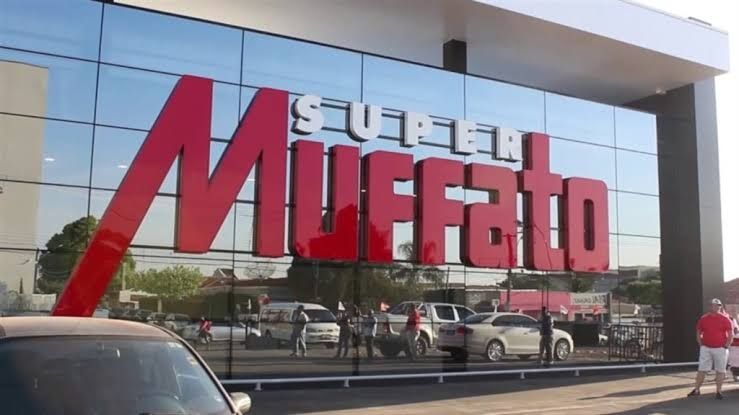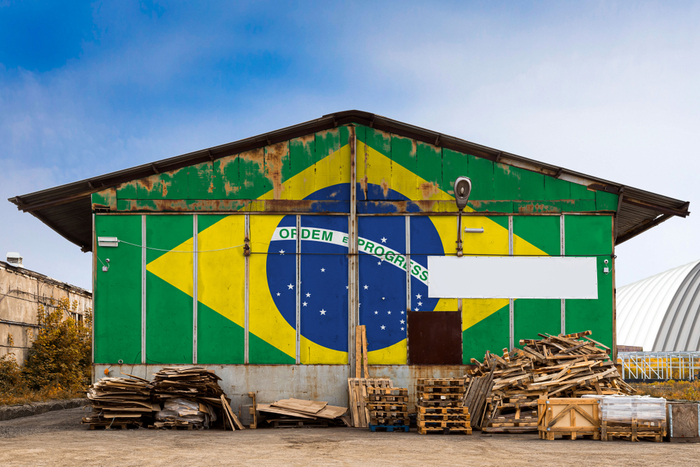Latin America recorded the highest retail revenue growth and profitability compared to all other regions in 2018 to 2019, according to Deloitte’s Global Powers of Retailing 2020 report.
The region added two retailers to the current total of 11 companies in the report’s Top 250 ranking, earning an average revenue of $7.9 billion.
The growth of retail in Latin America is driven mainly by consumer demand for convenience, with increasing internet penetration providing a further boost to ecommerce, along with the adaptation of multi-channel strategies.
The 11 largest Latin American retailers hail from only three countries: Brazil, Mexico and Chile. Yet Brazil is the largest and most populous country in the region, or 5th and 6th respectively on a global ranking.
Some of the biggest retailers in Brazil include Carrefour, GPA, Cencosud, Super Muffato, Companhia Zaffari, DMA Distribuidora, Sonda Supermercado, Mart Minas, Savegnago, Atacadão, Casas Bahia, Lojas Americanas, Máquina de Vendas, Restoque, and Via Varejo.

Via Varejo – a retailer founded in 2010 through the merger of retailers Casas Bahia, owned by the Klein family, and Ponto Frio, owned by GPA – made an appearance in the Global Powers of Retailing 2020 report at number 143.
As of 2020, Via Varejo had 1073 stores in Brazil, under the brands Casas Bahia with 857 stores and Ponto Frio with 216 stores.
Despite the decline in the economy, a 2018 report by GlobalData predicted that Brazil’s online sales would “consistently outperform” other channels over the next five years from 2016 to 2021 by 15.9 per cent. This will add R$63 billion to sales through this channel, reaching R$120.8 billion in 2021 with 6.2 per cent share of all sales.
However, it’s worth noting that report was published more than a year before the Covid-19 pandemic swept through the country. In fact it became so bad for Brazil, that at the time of writing it had the second-highest number of cases and deaths.

Due to the pandemic, Brazil’s retail sales have struggled. It saw a 0.4 per cent drop in December 2020, compared with a 5.9 per cent increase the previous month, according to CEIC. And in January this year, Brazil’s retail sales grew a meagre 0.3 per cent year-on-year.
On the other hand, Focus Economics found that Brazil’s retail sales dropped 0.2 per cent month-on-month in January, an improvement on December’s 6.2 per cent decrease.
LatinFocus Consensus Forecast panelists expect Brazilian retail sales to grow three per cent in 2021, while for 2022, retail sales are expected to rise 2.2 per cent.
In September last year, just before the second wave of the pandemic swept the world, Statista found that Brazil registered a drop of almost eight per cent in comparison to the same month in 2019. Despite the drop, this marked the fifth consecutive month in which the performance of the Brazilian retail sector improved after the initial impact of the Covid-19 pandemic – in April 2020 retail sales had plunged 35.4 per cent.
“Brazilian consumers are concerned with the future of the economy and mainly with their jobs,” KPMG Brazil retail segment leader Fernando Gambôa said.
“Brazilian consumers are concerned with the future of the economy”
“They are people with reduced purchasing power and with pressure on their income, causing these consumers to focus on essential products, strongly driven by price, but they do not disregard high quality of services.
“These are consumers that have adopted and have quickly adapted to digital commerce, due to practicality and convenience, and mainly due to the ease of comparing prices in real time.”
According to Gambôa, Brazil has five different geographic regions, and each one has different economic characteristics and consumer habits.
“Even with this characteristic, we have retail chains with nationwide operations, where they seek to adapt their business, management, assortment and even brands and formats, according to the characteristics of each region,” he told Retail Gazette.
“Major urban centres — such as São Paulo, Rio de Janeiro and others — end up mirroring models that are copied or adapted in other localities.
“But there are also remarkably successful regional retailers that dominate the market and make it difficult for national or international retailers to enter.
“The fashion and food services segments — as they are not considered essential items — had a difficult year, but they are seeking to adapt and transform their business.
“Digital commerce advanced on a large scale, mainly in sales via marketplace platforms, where many customers experienced ecommerce for the first time.”
Melissa Minkow, retail industry lead at technology firm CI&T, said the pandemic has greatly impacted Brazilian shopping behaviours.
“Malls are considered a cornerstone of Brazilian social life, so with those forcibly shut down, shopping patterns have had to morph into more mission-focused, less leisurely experiences,” she said.
“This has also meant increased receptivity to shopping online than ever before.
“Brazilian consumers were already comfortable shopping for apparel and electronics online, but groceries were still very much an in-person pursuit.
“Over the last year, shoppers have become increasingly comfortable buying groceries online and either having them delivered or picking them up on site.
“But this has been the slowest sector to experience change here, and it is unlikely the pandemic will fully tip the scales.”
“The retail climate in Brazil is dependent largely on a successful vaccination rollout”
André de Almeida, partner at law firm Almeida Advogados, said consumer confidence would be affected by how hard the pandemic continues to hit retailers and the Brazilian economy as a whole.
“The retail climate in Brazil at this present juncture is dependent largely on a successful vaccination rollout across the country in the wake of the Covid-19 pandemic,” he said.
“External demand is also a factor as the entire global economy has suffered from a pandemic related downturn and will most likely take time to rebound to the pre-existing climate.
“This being said, ecommerce is well-developed and sophisticated in Brazil and is being widely used to stimulate and sustain retail sales.”
Gambôa said that for international retailers to launch in the Brazilian market, they would need to have the flexibility to adapt their models, products, store assortment, management and even policies to local characteristics.
“Thoroughly knowing the tax aspects, which are complex, but should not be seen as impediments (several international companies have been operating successfully in Brazil for many years),” he told Retail Gazette.
“Understanding regional aspects — Brazil is a continent [sic], where each of the five regions has distinct characteristics. Being prepared for the Brazilian continental logistics, almost entirely done by road.
“Fully understanding the performance of competitors and markets you want to enter, especially if you have a competitive price for that region.”
Meanwhile Gonzalo de la Mata, head of international and global agency development at marketing firm Molzi, warned that retailing in Brazil is not as clear cut as selling elsewhere.
“To succeed, ecommerce managers must consider the differences between the Brazilian markets and the more familiar EU or US market, and edit their ecommerce listings accordingly,” he said.
“Retailers must aim to deeply understand the culture, from recognising that the native language is Brazilian Portuguese instead of original Portuguese, to knowing how to appeal to a largely Roman Catholic audience.
“Get this wrong, and brand reputation may take a long-term hit.”
Click here to sign up to Retail Gazette‘s free daily email newsletter
The post Market Snapshot: Brazil appeared first on Retail Gazette.
from Retail Gazette https://ift.tt/2PIcWxU
via IFTTT
Comments
Post a Comment